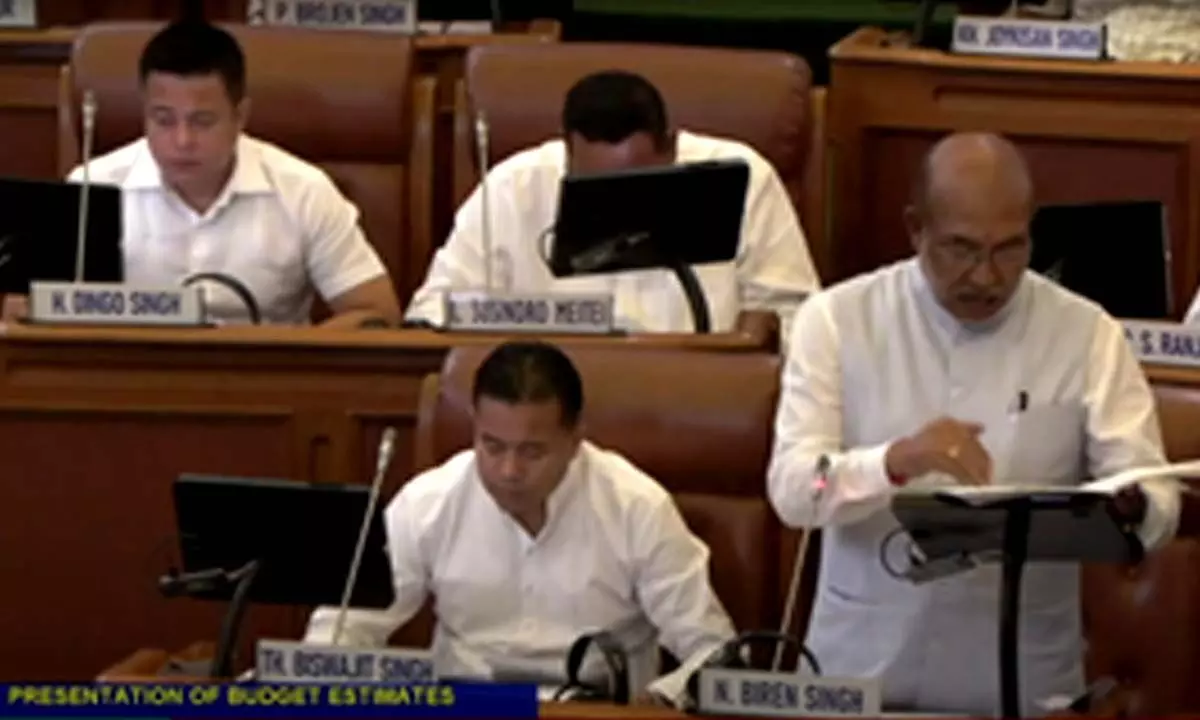Manipur Assembly session begins, 10 tribal MLAs once again skip house
Share :

The 13-day-long Manipur Assembly session began on Wednesday while ten tribal MLAs, who have been demanding a separate administration or a Union Territory for the tribals in the state, once again skipping the proceedings.
Imphal: The 13-day-long Manipur Assembly session began on Wednesday while ten tribal MLAs, who have been demanding a separate administration or a Union Territory for the tribals in the state, once again skipping the proceedings.
The current session, which would continue till August 12, is the third session of the Assembly since the ethnic violence broke out on May 3 last year.
On the earlier two occasions too, the 10 tribal MLAs belonging to the Kuki-Zo community boycotted the Assembly sessions, alleging insecurity in Imphal and demanding a separate administration or a Union Territory for tribals in Manipur.
Chief Minister, N Biren Singh last week said that he would request the 10 MLAs to attend the Assembly session.
Of the 10 tribal MLAs, seven are from the ruling BJP, two belong to the Kuki People’s Alliance and one is an Independent. One of the 10, the BJP’s Paolienlal Haokip, who was elected from Saikot Assembly constituency in tribal-dominated Churachandpur district, said that they would not attend the session this time too.
"When my people can’t set foot in Imphal, how can I attend an Assembly held in the state capital," he said.
Since May 3 last year, Manipur has been hit by unprecedented ethnic violence between the Chin-Kuki-Zos and the Meiteis that has claimed the lives of at least 220 people, while over 1,000 were injured and 60,000 people of both communities displaced.
The Chief Minister, who also holds the Finance portfolio, on the first day of the session, presented a Rs 34,899 crore budget for the 2024-25 fiscal, with a deficit of Rs 1,526 crore.
Tabling the budget, he highlighted the economic challenges faced by the state, primarily due to the ongoing ethnic unrest. He told the house that the ethnic crisis significantly impacted on the state’s economy, leading to a drop in revenue collections and increased spending on security and relief operations.
"Reduced own revenue collections, increased expenditure on security and relief operations, inflation, difficulties in movement of goods and services, problems in implementation of projects and schemes were a few of the challenges that we faced. With normalcy returning to the state, our tax collection is showing a positive trend. I am confident that this improvement would continue during the current year," the Chief Minister told the house.
Biren Singh said that the state government would continue to work on the economic recovery of the state.
"Bringing and ensuring a peaceful and secure environment, rehabilitation and support to those who are displaced, providing livelihood to those without one, providing opportunities for skilling, and investing in quality infrastructure are some of the steps that we are taking," he added.










